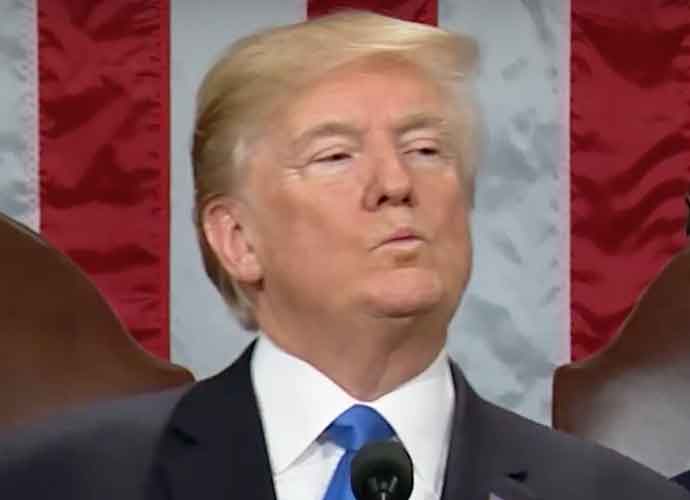

Donald Trump
With Robert Mueller’s Russia probe picking up steam, President Donald Trump has reportedly been inquiring about his power to pardon.
Trump has been asking advisers about whether he could pardon himself, his family members and his aides for any Russia-related connections, according to the Washington Post.
SLIDESHOW: DONALD TRUMP’S 30 CRAZIEST TWEETS
The power to pardon is absolute in the U.S. Constitution and applies to federal crimes, though the President cannot pardon someone in the case of impeachment. Those seeking a pardon must make a request through the Justice Department’s Office of the Pardon Attorney. The person who committed the federal crime needs to wait five years post-conviction or jail release before applying for a pardon.
Subscribe to our free weekly newsletter!
A week of political news in your in-box.
We find the news you need to know, so you don't have to.
All legal effects of a conviction are eradicated through a pardon, according to the Heritage Foundation. Still, preemptive pardons cannot be granted.
“A pardon can be issued from the time an offense is committed, and can even be issued after the full sentence has been served,” the Heritage Foundation said. “It cannot, however, be granted before an offense has been committed, which would give the President the power to waive the laws.”
The pardon request must go through the pardon office and deputy attorney general. All involved make a recommendation that eventually goes to the White House. Trump has the power to pardon his family and aides.
“He could pardon any indicted aides after they’re convicted, as a reward for loyalty, or he could pardon them now before any trial,” Vox writer Dylan Matthews said. “He could even deliver a blanket pardon for Jared Kushner, Michael Cohen, Donald Trump Jr. and any other people he worries could be charged in the future but have not been yet.”
But according to law professors interviewed by Vox, the move would likely work against Trump.
Once pardoned, anyone called to testify against Trump would be unable to wiggle out of it with the excuse of not wanting to self-incriminate. They are already free from prosecution, so they would have to answer all questions.
But, Trump might have one out: “Trump pardons them [Flynn, Kushner, Manafort, and Donald Trump Jr.] as he is exiting the White House and Trump exits early, allowing Pence to become president, and Pence then pardons Trump,” Georgetown University law professor Susan Bloch told Vox. “Trump will then have successfully shielded himself and his colleagues from criminal liability.”
Duke University law professor Lisa Kern Griffin told Vox that using the presidential pardon to influence a witness would could as obstruction of justice, for which Trump can be impeached. However, the people pardoned would still be free from legal prosecution.
The Heritage Foundation pointed out that self-pardons are not specifically dealt with in the Constitution and that in the 1970s, Richard Nixon’s lawyers argued it could legally be done.
“A broader reading of the Constitution and the general principles of the traditions of United States law might lead to the conclusion that a self-pardon is constitutionally impermissible,” the Heritage Foundation said. “It would seem to violate the principles that a man should not be a judge in his own case; that the rule of law is supreme and the United States is a nation of laws, not men; and that the President is not above the law.”
The pardon power does not extend to state crimes, so convictions in state courts would not be overturned by a presidential pardon.
Only two Democrats attended a congressional hearing about former President Joe Biden's alleged mental decline…
An initial classified report on the United States’ bombing of three Iranian nuclear sites stated…
With former New York Gov. Andrew Cuomo conceding in the Democratic primary for New York…
The Trump Administration is looking to "aggressively revoke" visas for Chinese students, Secretary of State…
Sen. Rand Paul (R-Kentucky) called out White House staff members for rescinding his picnic invitation…
President Donald Trump's 'Doomsday plane' was seen taking an uncommon flight from Louisiana to Maryland…